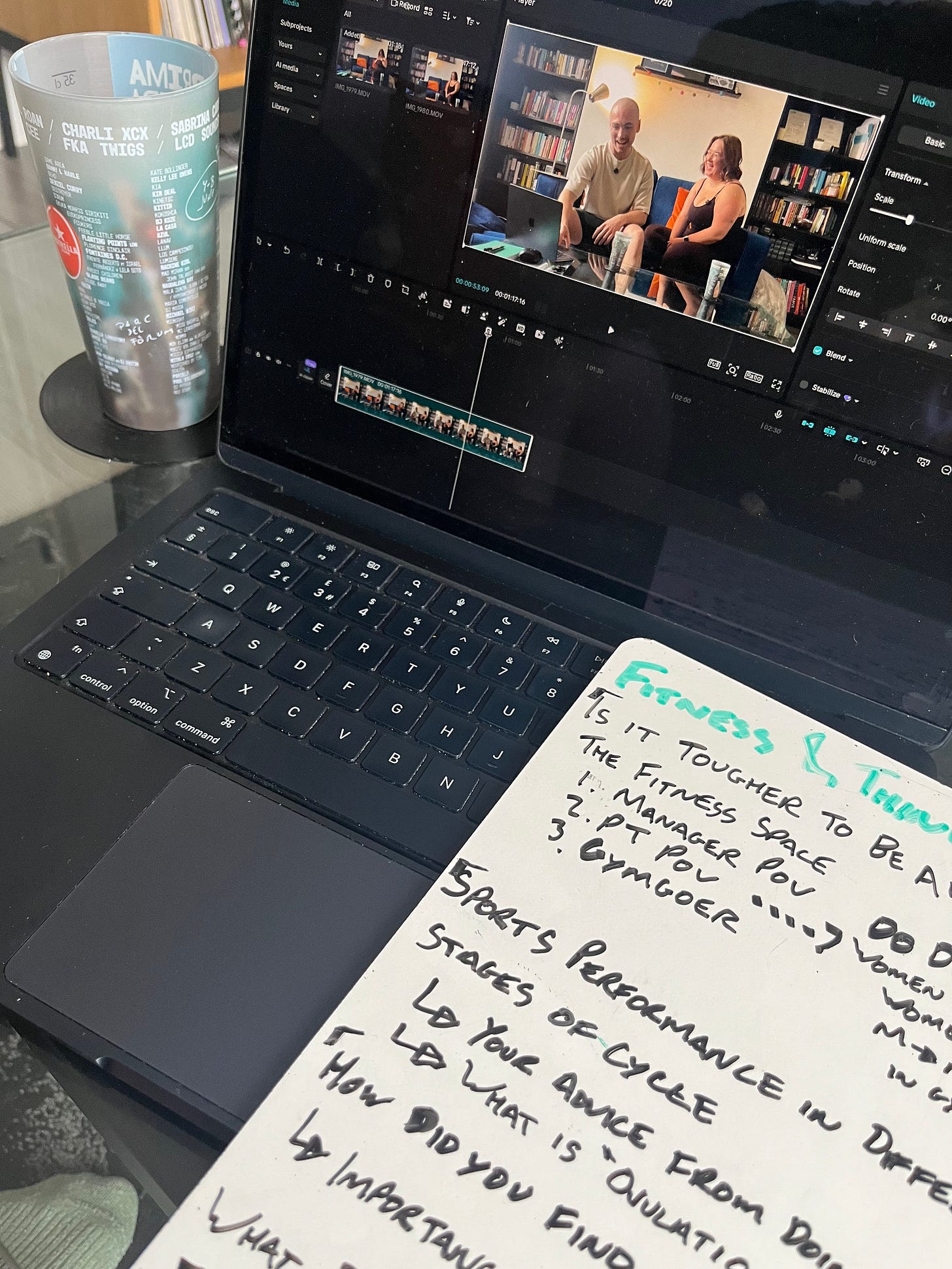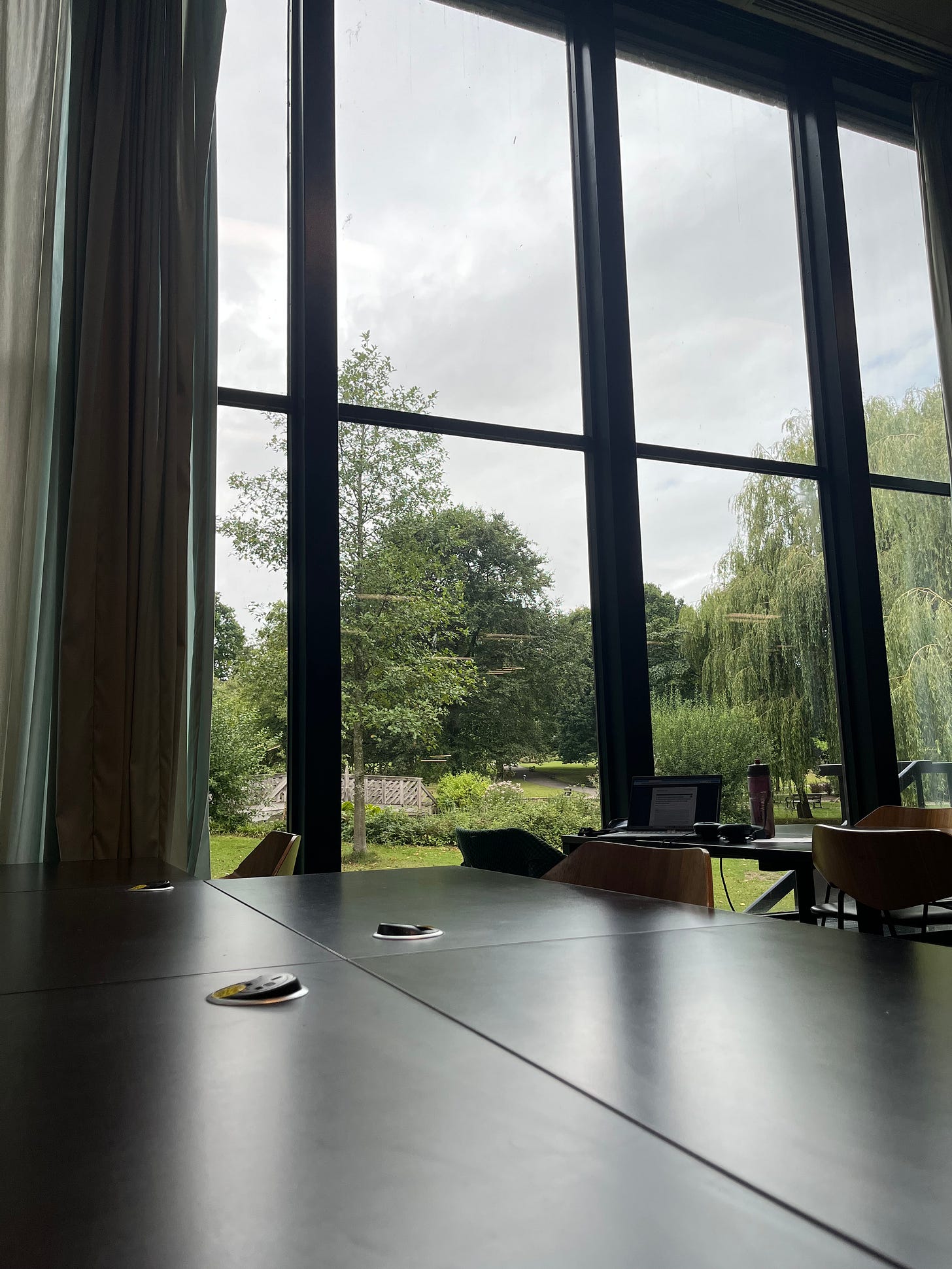Finding stillness in movement and movement in stillness
They say a change is as good as a rest but have you tried both?
Since July last year, I haven’t had a sense of home.
From July to January, I packed everything I thought I needed into a 24-litre backpack. Every three to five days, I’d partially unpack in a new place, partially get to know it, partially call it my own.
Travelling’s amazing for that – for moving, learning, living. But it’s not necessarily restful.
From January to July, I’ve stayed in North Yorkshire, London, Sheffield. Longer stretches in familiar places. More unpacked, more known, more my own.
Not travelling’s amazing for that – for resting, reflecting, living. But it’s not necessarily inspiring.
Like the taijitu behind the F&T logo, I know both states of not/travelling are necessary and interdependent – one within the other. And when I’ve craved one, it’s usually because I’ve had too much of the other.
If you’re about to travel
A little piece of advice? Slow it down.
After four months in Southeast Asia, I didn’t want to go home necessarily, I just wanted another afternoon on an empty beach. Another peaceful evening in a cool and quiet bedroom.
Stillness isn’t a lack of movement. It’s space to notice how you feel.
If you’re stuck in sameness
Another little piece of advice? Play around.
After a month in Sheffield of doing the same things every day, I started to forget what day it even was. My memories collapsed into a single block of sameness. I felt flat. I doubted myself.
Why we forget the ordinary
Few people talk about that Tuesday they spent mid-month working from home. But ask them about the scooter ride in flip-flops through Chiang Mai on the way from the empty water park to the orgasmically air-conditioned cinema where only a white guy stood for the national anthem, and the memory lights up.
This isn’t about importance: if you don’t do the former, you probably can’t afford the latter.
It’s about novelty.
A lot of why time seems to move faster as we age isn’t metaphysics – it’s memory. When your commute is the same five times a week, 50 weeks a year, your brain chunks it into a single “commute” memory. Efficient. Necessary. Forgettable.
But a walk on week two of your holiday, with a blister and sand-dried hair, and a wallet stuffed with strange notes in your shorts?
That sticks. You (can still) feel that one.
We remember what stands out. The more variation, the more vivid the recall. The more vivid the recall, the more expansive time feels.
Changing headspace
Two weeks ago I was doing everything; running, lifting, creating, socialising, working; you could call it “balanced”.
But turning all the dials to 11 felt more like a cacophony than a symphony I could play time and again.
My typical signs of burnout were all present: low mood, ulcers, sore ear and throat. Talking, eating and drinking were all painful.
So I cut the noise and turned things down, changing the tempo where I could. It didn’t mean doing nothing. It meant doing things differently.

Routine doesn’t mean rigid
When I was travelling, I often pined for the kind of days I have now.
So to enjoy them – and remember them – last week I started shaking things up within the routine:
I didn’t set an alarm. I went to bed when I was sleepy, and got up when I woke up. Turns out I’m naturally sleeping between 23:00–06:30. So I’m sticking with it.
I still trained, but reduced session intensity and tried new lifts ahead of my new block.
I skipped run club for a long overdue walk with a mate.
I turned left instead of right on my evening walks and found my new favourite supermarket.
I swapped my work desk for a space in my favourite library.
I didn’t force a newsletter for the sake of posting. Instead, I workshopped my biggest essay idea yet – likely still a weeks-long process. That mental space helped me release my best week of coaching content on Instagram, draft three smaller newsletter ideas, and bring the F&T podcast forward a day. The result? More listens and a full laptop-free Friday night and Saturday.

The podcast
Last week, Niell JJ, the Cali Physio, joined me to discuss pain, what causes it, how we can better live with it and how we might reduce our injury risk. The chat touches on identity and ego as well as interesting cultural differences between physio practices in the UK versus Malaysia. You can watch it below:
And that’s it from me! Where a change and a rest last week have both been helpful for my mood and energy so far this week, if you’ve found yourself in a bit of a rut too, what’s one small change you can make to shake your memory chunks up?
Hit reply and let me know!
J x



